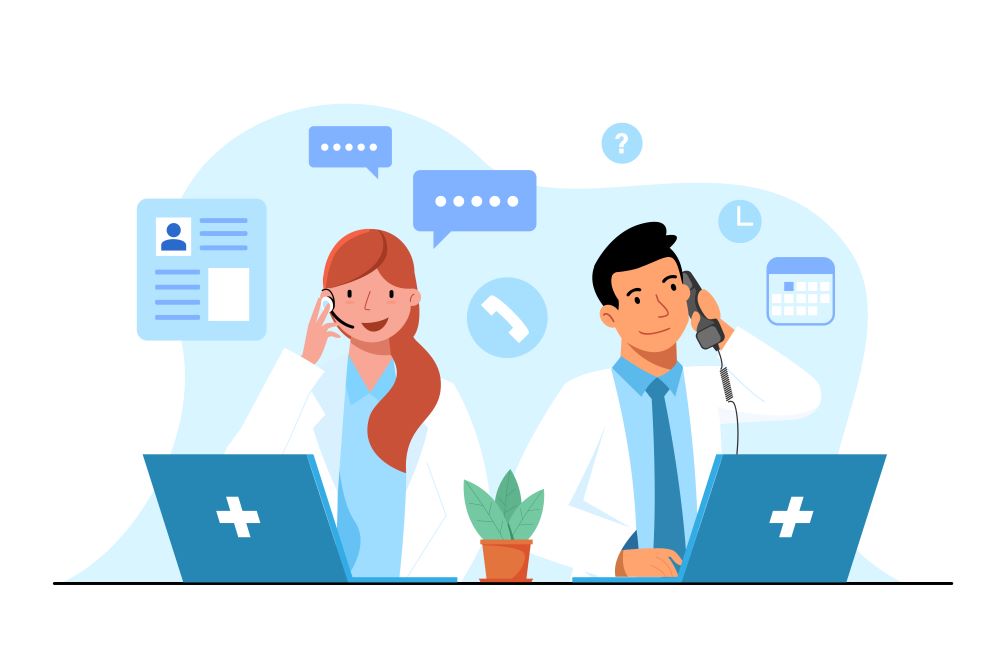
Why Your Healthcare Organization Needs an ERP Solution
Healthcare organizations must continuously adapt to changing regulations, advances in medical technology, and the growing demands of patients. To thrive in this dynamic environment, it’s essential to leverage cutting-edge tools and strategies. One such tool that can revolutionize healthcare management is an Enterprise Resource Planning (ERP) solution. This article explores the reasons why your healthcare organization needs an ERP solution and how information technology consulting services and healthcare consultancy services can play a pivotal role in its successful implementation.
1. Streamlining Operations with an ERP Solution
Managing a healthcare organization is a complex endeavor, involving numerous processes and systems. Without a centralized platform to integrate and manage these operations, inefficiencies can arise, leading to decreased productivity and increased costs. This is where an ERP solution comes into play.
An ERP solution is a comprehensive software system that brings together various aspects of healthcare management, including finance, human resources, supply chain, and patient information. With an ERP system, all data is centralized and accessible from a single interface. This not only simplifies daily operations but also enables better decision-making through real-time access to critical information.
Information technology consulting services can be invaluable in implementing an ERP solution. Experienced consultants can assess your organization’s unique needs, select the right ERP software, and ensure a smooth transition. Their expertise can help you avoid common pitfalls and achieve the full benefits of ERP integration.
2. Enhancing Patient Care and Safety
The primary focus of any healthcare organization is patient care and safety. An ERP system can significantly contribute to this mission by improving the accuracy and accessibility of patient records. Electronic Health Records (EHRs) integrated within the ERP system allow healthcare professionals to access patient data quickly and securely, reducing the risk of errors and improving decision-making.
Healthcare consultancy services play a critical role in ensuring that the ERP system is aligned with industry standards and regulations. Compliance with regulations such as the Health Insurance Portability and Accountability Act (HIPAA) is non-negotiable. Consultants with expertise in healthcare can help tailor the ERP system to meet these requirements, minimizing compliance risks and protecting patient information.
3. Optimizing Resource Management
Managing resources efficiently is a constant challenge in healthcare organizations. Whether it’s managing staff schedules, tracking medical supplies, or optimizing the allocation of rooms and equipment, an ERP system provides real-time data to help make informed decisions.
Information technology consulting services can tailor the ERP system to your specific resource management needs. This includes setting up automated workflows, creating customized reports, and providing training for staff to maximize the system’s potential. These services ensure that your organization’s resources are utilized effectively, reducing wastage and cutting costs.
4. Improved Financial Management
Financial stability is vital for the continuity of healthcare organizations. An ERP solution aids in financial management by automating tasks such as billing, claims processing, and revenue cycle management. It also provides real-time financial data, enabling better budgeting and forecasting.
Healthcare consultancy services can assist in configuring the ERP system to handle the intricacies of healthcare billing and reimbursement. Their expertise ensures that your organization is well-prepared for audits and can maximize revenue while minimizing financial risks.
5. Data-Driven Decision-Making
In the rapidly evolving healthcare sector, data-driven decision-making is a competitive advantage. An ERP solution not only consolidates data but also offers advanced analytics tools. These tools can identify trends, measure performance, and predict future needs, enabling healthcare leaders to make informed decisions.
Healthcare consultancy services can help your organization harness the power of data analytics within the ERP system. They can develop custom dashboards, set up key performance indicators, and train staff in using analytics tools effectively. This guidance empowers healthcare leaders to make strategic decisions that drive the organization forward.
6. Scalability and Growth
Healthcare organizations often experience growth, whether through the addition of new facilities, increased patient volumes, or expanding services. An ERP system is designed to scale with your organization. It can seamlessly accommodate the changing needs and complexities that come with growth.
Information technology consulting services can help ensure that the ERP system is adaptable and scalable. They can design an implementation plan that accounts for future expansion and ensure that your system remains responsive and efficient as your organization grows.
7. Patient Engagement and Satisfaction
In the digital age, patients expect a seamless experience when interacting with healthcare organizations. An ERP system can help improve patient engagement and satisfaction by providing online portals for appointment scheduling, access to medical records, and secure communication with healthcare providers.
Healthcare consultancy services can assist in designing patient-focused features within the ERP system. They can also help with training staff to interact effectively with patients through these digital channels, ensuring a positive patient experience.
8. Competitive Advantage
In a competitive healthcare landscape, staying ahead is essential. Implementing an ERP solution can give your organization a competitive advantage by streamlining operations, improving patient care, and enhancing financial management. This competitive edge can attract both patients and top talent, helping your organization thrive.
Conclusion
In the ever-evolving healthcare industry, an ERP solution is no longer a luxury but a necessity. It streamlines operations, enhances patient care and safety, optimizes resource management, and improves financial management. With the support of information technology consulting services and healthcare consultancy services, your organization can successfully implement an ERP system that addresses your unique needs and challenges.
By embracing this technology, healthcare organizations can make data-driven decisions, achieve scalability, and provide better patient engagement while gaining a competitive edge. The future of healthcare management lies in the integration of ERP solutions, and with the right guidance, your organization can navigate this transformative journey with confidence. Don’t wait – start exploring how an ERP solution can revolutionize your healthcare organization today.


